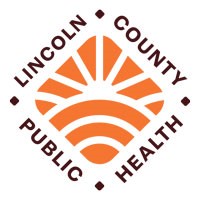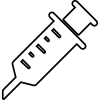Many people aren’t aware they have an STD.
Sexually transmitted diseases (STDs), also called sexually transmitted infections (STIs), are illnesses spread by sexual contact. Many People aren’t aware they have an STD. Symptoms may not be present or obvious. Infected people can spread STDs without knowing it.
There are many types of STDs. While most STDs can be treated, all STDs can be prevented. The most common are:
- Chlamydia.
- Gonorrhea.
- Herpes.
- Syphilis.
Providers must report STD cases.
Healthcare providers and facilities must report HIV/AIDS and most other STDs within 3 business days.
Fax the appropriate reporting form to (509) 725-1014.
For more information, see our reporting notifiable conditions page or call (509) 725-1001.
We encourage providers to give EPT.
Expedited partner therapy (EPT) helps control the spread of infection. EPT is giving medicine to an infected person’s sex partners without examining them first. This helps prevent reinfection of the patient and prevents further transmission by partners.
EPT is permissible in Washington in many cases of Chlamydia and Gonorrhea. Providers can find out more about EPT from the Centers for Disease Control and Prevention (CDC), and by contacting the Health Department.
- EPT guidance—DOH.
- EPT review and guidance—CDC.
Resources
Treatment guidelines
- STI Treatment Guidelines—CDC.
- Letter to providers about gonococcal treatment update—Washington State Department of Health (DOH), 2021.
- Letter to providers about gonococcal treatment update—Department of Health and Human Services, 2020.
Disease information
- National STD Curriculum Podcast.
- Sexual orientation disparities in risk factors for adverse COVID-19 related outcomes, race/ethnicity-behavior risk factor surveillance system, United States, 2017-2019—CDC, 2021.
- Disease information—CDC.
- Bacterial vaginosis (BV).
- Chlamydia.
- Genital herpes.
- Gonorrhea.
- Human papillomavirus (HPV).
- Pelvic inflammatory disease (PID).
- Syphilis.
- Trichomoniasis.
- Other STDs (chancroid, lymphogranuloma venereum [LGV], mycoplasma genitalium).
- STD data and information—DOH.
- National STD curriculum self-study training modules—CDC and University of Washington.
- Clinical and non-clinical education and training—CDC.
Pre-exposure prophylaxis (PrEP)
- PrEP for HIV prevention—CDC.
- PrEP for HIV clinical practice guideline—CDC.
- PrEP and PEP for HIV prevention—DOH.
- PrEP Watch: data, research and access.
Tools for working with patients
- Recommendations for providing quality STD clinical services—CDC, 2020.
- Affirmative care for people who are transgender or gender non-conforming— National LGBTQ+ Health Education Center.
- Asking questions about sexual orientation and gender identity in clinical settings.
- Taking a sexual history—CDC.



